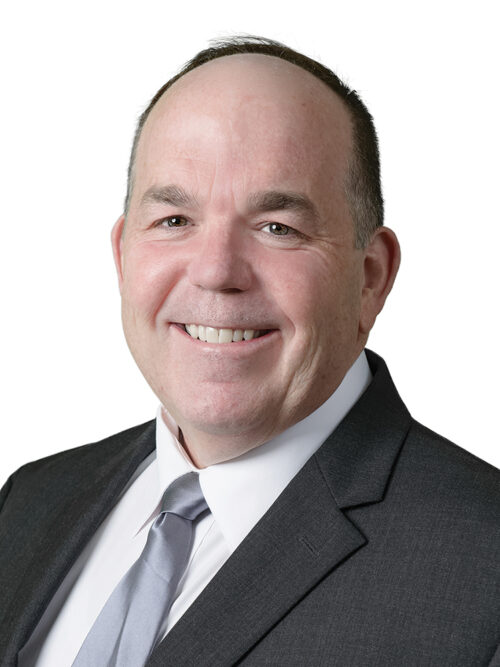
Home » Don’t shortchange your retirement dreams by failing to plan
Don’t shortchange your retirement dreams by failing to plan

February 14, 2022
Tom Black puts out plenty of fires when clients come ready to turn retirement savings into a retirement plan.

Overcomplicated investment portfolios. Ill-advised financial packages. Fear.
But there’s one problem he can’t solve – missing out on dreams out of fear of running out of money.
The eighty-something who never went on that dream safari or didn’t fulfill another retirement goal when they were physically able to is a mistake he can’t undo.
Underspending is one of the more surprising mistakes Black sees in his Kennewick-based retirement planning practice.
Black, president and lead financial planner for The Retirement Solution Inc., helps clients create plans designed to carry them through the ends of their lives. He manages funds as well. Retirement Solution charges a flat fee for its services.
Black said the first thing to know about retirement planning is that the size of the client’s nest egg is far less important than balanced spending. That’s why a plan is the most important way to approach retirement, whether it is 10 years away, five years or sooner. He likened it to constructing a building.
“You don’t buy land and begin building. You always start with a blueprint,” he said.
People need to know how much is coming in and going out each day, week, month and year. A proper plan can lay it all out through age 100, giving retirees the confidence to enjoy the activities they love when they can. Regret is a terrible thing, he said, noting recent reports that people are dying with more money than when they retired because of fear.
“They’re depriving themselves,” he said. “They have until 75 to really go out there and enjoy their retirement.”
Individual mileage will vary of course, but by the time most retirees enter their ninth decade, the ability to travel is gone.
“They get to 80 and look back and say, ‘I wish...’ ” he said.
Getting the most out of retirement starts with the combination of savings and understanding what resources will be available once the paychecks stop.
The amount of money saved is less relevant than the budget. Black said he has clients with $250,000 saved and no worries because their monthly income outpaces their monthly expenses.
In contrast, he’s seen people with
$2 million who are in danger of spending it down to zero.
“It’s that relationship that you want to get correct,” he said.
Black offers a commonsense approach to preparing for retirement that begins with understanding your own limits.
Enlist a professional
The internet is full of advice, but like any profession, financial planning requires training and experience. “I want to encourage people; this is not their profession. They may have been very good schoolteachers or welders, but the finance market is not something you pick up easily,” he said.
He understands the temptation to self-manage. Fees appear steep. A new federal law requires financial managers to disclose fees.
Understanding fees and recognizing when they’re reasonable – or not – is part of the process.
“Anything is better than trying to handle investments on your own when it’s not your world. It would be like putting me in a high school classroom – it would not be successful for anyone,” he said.
Think ahead
Black advises people to begin thinking about a spending plan when they’re 10 years away from retirement age. What will you need to retire when you want to, and what do you need to change to get there?
By the five-year mark, they should have a solid plan that sets them up to walk out the door on the planned date with confidence.
"Otherwise, you’re going to find yourself trapped in that job by the market,” he said.
Don’t panic
A good plan will tame anxiety about downturns, like the one triggered by inflation concerns in the first weeks of January. Yes, the stock market is down, and retirement plans look bruised. That’s not a signal to get out.
“Take a deep breath,” he advised. “This is hopefully what you planned for. Stay the course.”
The mistake people make in a situation right now is panic and taking the money out, which is the single worst thing you can do, he added.
He cites recent clients who panicked in March 2020, when the Covid-19 pandemic first took hold. A couple pulled their money out of the market, which locked in their losses. Anticipating inflation, they purchased gold.
“They didn’t realize gold is expensive to buy and hard to sell,” he said.
Fortunately, the duo has a sizeable income from their pensions and Social Security – more than they spend.
“As long as they both live, they would be OK because they had $6,000 a month in pensions and Social Security and a budget of $4,800. They knew their budget,” he said.
Enjoy your legacy now
The earlier you determine there will be more money than needed, the better, Black said.
With that knowledge, options abound, including making gifts to adult children.
Black is a big advocate of supporting adult children when they need it most – to pay for college, first homes and so forth. Make a difference when you can see the difference, he advised.
The same spirit guides his approach to philanthropy. There are lots of ways to transfer money to charities. Being able to see gifts in action has its own reward.
“Being able to feel like you can do that while you’re alive is very rewarding. It’s nice to leave a legacy when you’re dead, but you’re dead.”
Retirement
KEYWORDS february 2022





